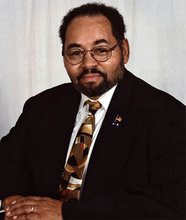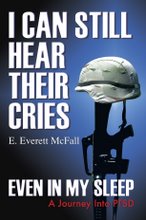By Senitra Horbrook, Staff Writer
Post Traumatic Stress Disorder often afflicts troops returning
from war. Last year The United States Army had the highest rate
of suicide in 30 years, according to published reports.
That's why, with the help of a half-million dollar grant, the Mental
Health America of Greater Dallas has started a free program to
help troops returning from Iraq or Afghanistan find appropriate
mental health care.
"The main goal is to help the veterans and service members to
relieve the stress issues related to post traumatic stress disorder,"
said Walter Norris, one of two coordinators of "Operation Healthy
Reunions."
Mental Health America of Greater Dallas and the American Red Cross
received a grant in the amount of $553,260 to support mental health
care and case management for Iraq and Afghanistan veterans
and family members. Assistance paying for health services over
a two-year period will be provided through the Texas Resources
for Iraq-Afghanistan Deployment Fund (TRIAD) of The Dallas
Foundation.
"We don't want to be like Vietnam. Many of them had PTSD and
nothing was done," Norris said.
Troops as well as their families from counties including Dallas,
Denton and Collin are eligible to participate in Operation
Healthy Reunions."
Myself and the other coordinator do a psycho social assessment,
focused on whether they're having post traumatic stress disorder.
If they're experiencing problems due to trauma, we'll refer them
to counseling, to physiatrists, marriage counseling, substance abuse
or anger management counseling," Norris said. "Sometimes the
service member could be in Iraq and their family back here is
experiencing problems because the service member is deployed.
"Many troops don't seek treatment because there has been a
longtime stigma attached to mental health treatment."
For many years in the military, if they started having emotional
issues, they were discharged. In the past, they might lose their
ecurity clearance. The Department of Defense is making some
changes there to loosen up those rules," Norris said. "That culture
has been there many years, so it's hard to come forward and
admit they're having some post traumatic stress issues."
Post traumatic stress disorder is an anxiety disorder, related
to a person witnessing or being involved in a traumatic event,
Norris said. The disorder can go away with proper treatment,
which usually includes therapy and may also include medicine.
Repercussions from not seeking treatment can have great impact
on the service member and his or her family. "They start having
family issues, start having marital problems, children start acting
out," Norris said. "The service member can become isolated,
anger issues arise, drinking, taking drugs. They avoid
talking about the war itself. They become depressed.
Depression is a big consequence of PTSD."
Troops and their families interested in more information on
Operation Healthy Reunions can contact the Mental Health
America of Greater Dallas at 214-871-2420 or visit mhadallas.org.
Contact Senitra Horbrook at 972-628-4074 or
shorbrook@acnpapers.com.
RECAP FACTS:
* The US Army last year had the highest rate of suicide in 30 years
* 25 percent of troops serving more than one deployment need
mental health care
* Up to one-fourth of returning troops struggle with psychological
injuries
* Stigma is the major deterrent for not seeking treatment
* Most all mental health illness is curable with proper treatment
* Care is for the service person and their families
* The Secretary of Defense has stated that mental health treatment
will not become a part of a troop's medical file, contrary to previous
regulations
Source: Mental Health America of Greater Dallas
Copyright © 2008 Star Community Newspapers
624 Krona Drive Suite 170,
Plano, Texas 75074
Contact Star Community Newspapers at 972-398-4200
------------------------------------------------->
The toll-free Veterans Affairs Department Suicide hotline number
is 1-800-273-TALK (8255).
Veterans Affairs Department: http://www.va.gov/
Iraq and Afghanistan Veterans of America: http://www.iava.org/
------------------------------------------------>
Flashback, Posttraumatic Stress Disorder, Suicide,
and the Lessons of WAR-- by Penny Coleman
---> I Can Still Hear Thier Cries, Even In My Sleep ...
A Journey Into PTSD --By E. Everett McFall
Both Books are Available on Amazon.com
by E. Everett McFall spotlight this
Thursday, June 26, 2008
Subscribe to:
Post Comments (Atom)







2 comments:
They are being told to seek treatment so that they can be identified so that they can later be weeded out.
You made some good points there. I did a search on the topic and found most people will agree with your blog.
Post a Comment